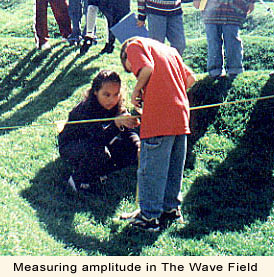

I have been a teacher, a teacher educator, a program director, a community development specialist, and a business consultant for more than 30 years.
As an elementary teacher, I was passionate about providing children a more joy-filled and experience-based learning environment. Rabbits, hamsters, and hatching chicks brought wonder and delight into the classroom. Older children helped with reading and projects. Nursing home residents brought grandparent-like attention, teaching, and guidance. I recognized early on that children all need time and help to reflect on who they are and want to become. Parent, community, and business resources allowed them to explore their interests through projects, tours, and job shadowing.
My classrooms became a learning lab for Michigan State University professors who had mentored and taught me during my undergraduate years. They often filmed, observed, and wrote about our doings in and out of the classroom. I was invited to become a teacher educator, helping undergraduate and graduate students to explore experiential learning, different learning modalities, and how people can best teach themselves new things. This was the time I came to appreciate the truth of the adage that “it takes a village to raise a child.” I got excited about community development research and how all facets of a community can play roles in supporting the social, emotional, and educational development of children as they grow into productive community members themselves.
Throughout those years, I always offered programs, workshops, and support groups for parents, who were hungry for more information on child development, learning styles, and communication skills. A balanced and healthy family life is crucial to children’s learning and ultimate life success.
Next, I was recruited by the governor’s staff to help displaced workers retrain for new and more demanding jobs. Their lack of basic skills and self-confidence about learning undermined their job search. It was a natural segue to work with government and the United Auto Workers to start Family Learning Centers to provide a venue for people of all ages to get help with basic skill upgrades and career exploration, using many volunteers. My own knowledge and skills grew immensely as I worked with diverse community leaders and members to form coalitions addressing these needs.
Coalition-building to leverage and link resources for learning and for creating realistic career or job goals brought me to the task of helping to build the Detroit Compact. Action teams of business leaders identified academic and character traits needed in workers. We connected churches, community centers, parent organizations, and businesses to create tutoring and mentoring programs. Recognizing that limited partnerships were not enough, I turned to building comprehensive coalitions to support children and teens in holistic life preparation. Eastern Michigan University, University of Michigan, Washtenaw County government, Ypsilanti Public Schools, and the Community Church of God came together in such a coalition. Close relationships developed as a wide range of adults joined to love, guide, and support children through college students in making academic and life plans and successfully executing them. My efforts at coalition-building also included work with the Flint Round Table and cowriting the successful proposals for Eastern Michigan University’s first AmeriCorps, Serve and Learn America, and Senior Corps grants.
As funding ceased for these coalition programs, I started a consulting company that trained business groups in team-building, goal-setting, problem-solving, personal and personnel development, as well as character, leadership, and communication skills. One specialty was how to inculcate an organization’s culture in new employees and to create systems to pass on institutional knowledge. These 14 years of consulting came just as business models were making the monumental shift from top-down hierarchies to more distributed and integrated management. Engineers began to work along side assemblers; quality circles invited everyone’s ideas on improving processes and productivity. The recognition surfaced that every person was a valuable resource and that ongoing learning was now a given. Companies tapped my experience and ability to train people in understanding their learning styles, acquiring effective communication skills, and grasping strategies
for effective problem-solving.

When the opportunity arose to be the education director for a National Science Foundation technology center at the University of Michigan, I was elated. During the 1990s, I again built a coalition to share resources in the Ann Arbor, Ypsilanti, Pontiac, and Detroit areas. Charged to foster math and science literacy, we latched onto messy hands-on science projects as a way to engage learners, support teachers, and involve parents in those joy-filled learning environments. Lab visits and workplace tours served both to provide learning opportunities and to help children explore potential career fields.
As federal funding and a K–12 outreach mandate ended for the center at UM, a core group of us formed the nonprofit organization Michigan Reach Out! to continue running mentoring programs in Ann Arbor. Our orientation and training model was adopted by the Connecticut Governor’s Mentoring Program, and I was instrumental in defining quality mentoring as part of the original Mentor Michigan Providers Council.
Through all those years, a common theme arose: we all need mentors. Today, I recognize that
deep, real relationships are the magic ingredient missing from families, churches, schools, and organizations of every kind.
So, I hope that this book will encourage people of all ages to take time to learn about themselves and just how extraordinary and unique they are. We encourage you to share this journey with others you care about. The power of relationship can deepen self-exploration — just as it did for the authors in writing the book together. |